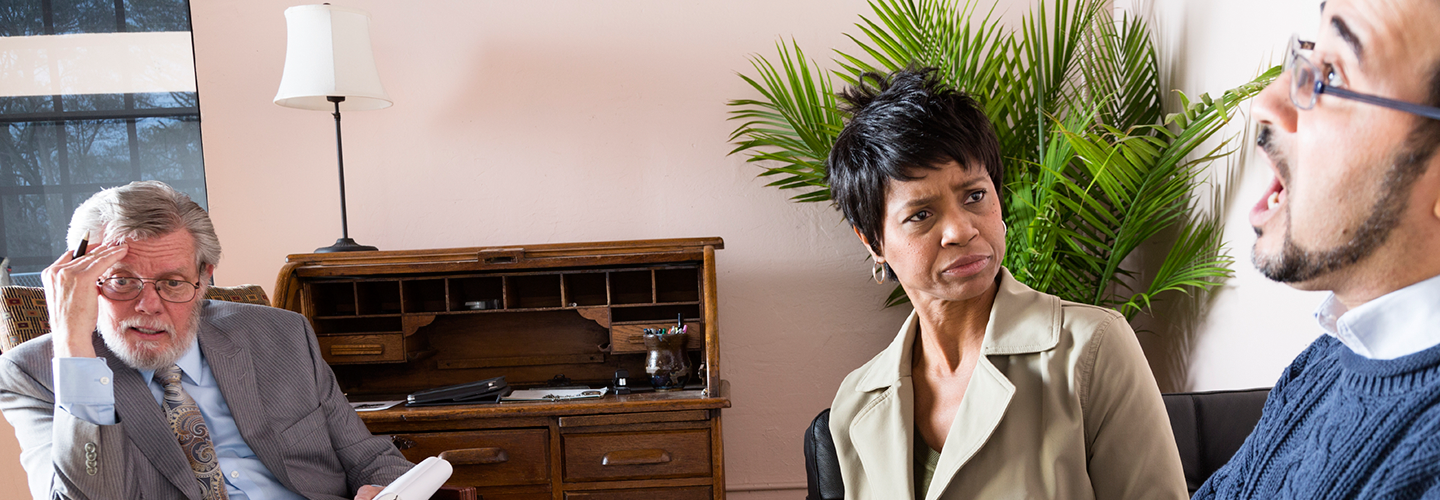Adult Relationships 103 – Marriage
- Home
- Blog

Marriage is one of the most challenging of all human relationships. It can also be one of the most rewarding. True intimacy, including friendship, compassion, empathy, sharing and realizing dreams, advising, comforting and supporting each other through life, sexual satisfaction, and deep love and affection, are all possible – yet at times can be elusive and even feel like an impossibility. Most marriages are characterized by highs and lows – times of joy and times of despair – tender intimate moments and periods fraught with conflict and emotional distance. What makes a marital relationship so complicated?
To begin with, marriage is the most intimate of all human relationships. Emotional and sexual intimacy stirs up deeply felt and largely unconscious conflicts, feelings and fantasies. Dependence and independence, loyalty and betrayal, need satisfaction and disappointment, commitment and fears of abandonment, trust and mistrust, narcissistic love and mature love, freedom and self-sacrifice are just some of the contrasting and conflicting conscious and unconscious emotions that characterize any intimate relationship, and are most intensely experienced in a marriage.
Our relational experiences with our mothers and fathers, stemming from early childhood, become significant determinants in how these unconscious emotional issues are played out in a marriage. How our parents behaved in their own marriage are also influential factors. Later disappointments in the love affairs of adolescence and young adulthood also shape ones feelings and expectations in adult relationships, as can a prior divorce. In addition, biological, social/environmental, and existential issues can come into play. If one’s spouse has ADHD, depression, anxiety, or a substance abuse problem, additional burdens are placed on what is already a complex relationship.
Not uncommonly, when a couple presents for marital therapy, there is a true feeling of crisis in the marriage, and fears that the marriage is over. What happened? Not uncommonly, the marriage went off track and the couple did not become aware of this until much later. The pressures of careers, raising children, and finances often result in the marital relationship being relegated to second, third or fourth place in the hierarchy of what is attended to, cared for, and nurtured. This neglect, along with one or more unrecognized and unspoken major disappointments and emotional wounds, derails what had once been a stable and mutually satisfying marriage. Gradually the marriage deteriorates and may be characterized by hostility, indifference and escalating conflicts.
At the outset, the goal of marital therapy is neither to “save” nor to “civilly end” the marriage – there is no preconceived agenda – it is to create a safe and open environment to begin to explore what happened to a previously satisfying relationship, and determine where it went off track, and the circumstances surrounding those events. Not uncommonly, there was a deep misunderstanding that developed, and mutual hurtful actions served to usher in a period characterized by a downward spiral in emotional relations. Once the initial causes are identified, talked through, and understood, forgiveness and empathy can begin to develop. Neurobiological factors such as ADHD, depression, anxiety, substance abuse or bipolar disorder can be addressed by medication management and individual therapy. Earlier passions, whether they are physical or experiential, can be rediscovered as a result of initial healing, which in turn can transform a downward spiral into a more hopeful situation for the future, enabling the development of new positive experiences together and upward momentum in the marriage.
Mignon McLaughlin once said that “A successful marriage requires falling in love many times, always with the same person.” If a couple has the courage to face up to and work through their feelings of disappointment, hurt, and anger, they can rediscover their loving feelings and begin to delight once again in each other’s company.
.png?width=144&height=144&name=Untitled%20design%20(34).png)



